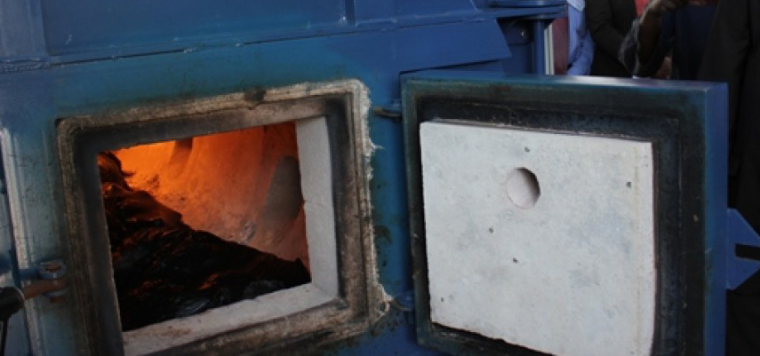Incineration photo of aborted baby redirects man's life

BRIDGE CITY, Texas (Christian Examiner) – Darrell Segura cannot remember what he was supposed to eat for his supper that night at the refinery where he was taking a break, but he cannot forget the photograph he saw in the magazine he was reading.
"It was in the quiet of the night," said Segura, an involved layman at First Baptist Church of Bridge City. "I was reading a newsletter from Last Days Ministries, and in it was a picture of this fully-developed baby atop a dog incinerator.
"They were fixing to incinerate that aborted baby the same way you'd incinerate a dog," Segura said, his voice rising in remembered horror. "God's never let me forget that picture."
He knew he needed to do something, so he joined with the group East Texans for Life. That was in the early 1980s, almost 10 years after the infamous Supreme Court Roe v Wade decision that opened the legal door to abortion across the United States.
"I couldn't believe this was going on in our country," Segura told Christian Examiner. "I knew it was wrong. I knew it was not a thing God would approve of."
He heard of the March for Life in Washington D.C., and suggested those who couldn't make the national event might do something similar on a smaller scale locally.
That was the start of what was the 26th annual Walk for Life and Pro-Life Rally last January from St. Anne's Catholic Church to the Beaumont abortion clinic. That abortion clinic closed in April 2014, but Houston is just 100 miles west, and the abortion clinic there – one of the largest in the nation – remains open.
"The reason I'm going to continue to participate is because we still have abortion in America," Segura said. "If we get lax and drop our guard, it [the abortion clinic] will come back here. Just because we don't have an abortion clinic in Beaumont right now is no reason to stop emphasizing at least once a year people need to support life, to be pro-life.
"You know, when we started I never dreamed we'd still be doing that Walk for Life in 2015," the pro-life advocate continued. "It doesn't matter if we don't see what happens; we just have to be out there."
Early in his involvement with pro-life causes, Segura would join protesters on Saturday mornings on the street in front of the Beaumont abortion clinic.
"During that time I saw every combination of people going in," Segura said. "Some married, some single; some escorted by their mothers, some by grandmothers.
"I asked the people I was with, 'Why isn't the press out here?' and they said, 'We call them and they always tell us, What's different about that?' I've always been a kind of creative guy, so I went to the GI surplus and got what looked like a German uniform.
"My wife sewed swastikas on it, and I got a sign: 'Hitler loves abortion.' Within 30 minutes of being out there in that uniform, with that sign, the news media was out there."
Segura chuckled. "At Easter I had a rabbit costume and my sign said, 'The Easter Bunny hates abortion.'"
Sometime later, Segura was talking with one of the news cameramen, who told him he and his wife, driving to the abortion clinic, saw the protestors with their signs. They drove past, pulled into a parking lot and talked for an hour before deciding to not abort their first-born child.
Today Segura is vice-president of Right to Life of Southeast Texas.
In addition to the Right to Life of Southeast Texas Pro-Life Rally that responds to the mid-January anniversary of the Roe v Wade Supreme Court decision allowing abortion, the group has, each spring, what is the longest-consecutive booth at the Southeast Texas Fair, which has pro-life materials.
It also promotes what has grown to 80 banners placed strategically across Southeast Texas, which are changed every four months to keep the message fresh, and Life Chains, which are groups of people in late October who stand at major roadways with banners as a silent witness.